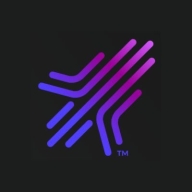

Tidal by Redwood and Rocket Zeke are products competing in the enterprise software domain. Rocket Zeke has an edge in advanced features, while Tidal by Redwood is stronger in customer support and value.
Features: Tidal by Redwood offers robust integration capabilities, efficient data processing tools, and comprehensive customer support. Rocket Zeke includes cutting-edge analytics, customizable modules, and detailed insights.
Ease of Deployment and Customer Service: Tidal by Redwood provides streamlined deployment with thorough onboarding, boosting customer satisfaction. Rocket Zeke, despite a more complex deployment, offers extensive documentation and proactive support.
Pricing and ROI: Tidal by Redwood has a lower setup cost and quicker ROI, targeting cost-conscious buyers. Rocket Zeke's higher initial investment is offset by long-term ROI from its performance and features.


Rocket Zeke is designed for project management, facilitating team coordination and task tracking. Its key features include seamless tool integration and real-time updates, which enhance productivity and streamline workflows, leading to improved deadline adherence and resource allocation.
Rocket Zeke stands out in the project management market with its capability to integrate a range of tools, enabling real-time updates and effective collaboration. Users benefit from its ability to manage large datasets efficiently, using an intuitive dashboard that simplifies complex tasks. Renowned for its speed and ease of use, Rocket Zeke offers customization options, timely customer support, and regular updates to keep functionality at its peak. However, it faces challenges related to software performance, with occasional lags and crashes, a steep learning curve, and slower customer support response times. Enhancements in these areas could significantly improve the overall user experience.
What are Rocket Zeke's most important features?Rocket Zeke finds application across different industries, helping teams in sectors such as technology, marketing, and finance streamline their project management processes. Its integration capabilities and real-time updates are particularly beneficial for teams needing to stay agile and coordinated.
Tidal Software is a leading provider of enterprise workload automation solutions that orchestrate the execution of complex workflows across systems, applications and IT environments. With a comprehensive portfolio of products and services, Tidal optimizes mission-critical business processes, increases IT cost efficiencies and satisfies legal and regulatory compliance requirements. Hundreds of customers around the world count on Tidal for modernizing their workload automation and driving their digital transformation. Tidal Software is headquartered in Chicago with offices in Houston, London, Minsk, Belarus and Chennai, India. For more information, visit tidalsoftware.com.
We monitor all Workload Automation reviews to prevent fraudulent reviews and keep review quality high. We do not post reviews by company employees or direct competitors. We validate each review for authenticity via cross-reference with LinkedIn, and personal follow-up with the reviewer when necessary.